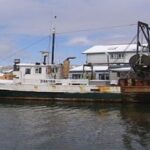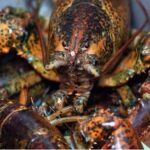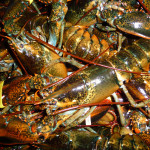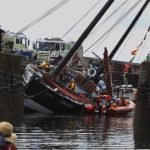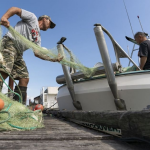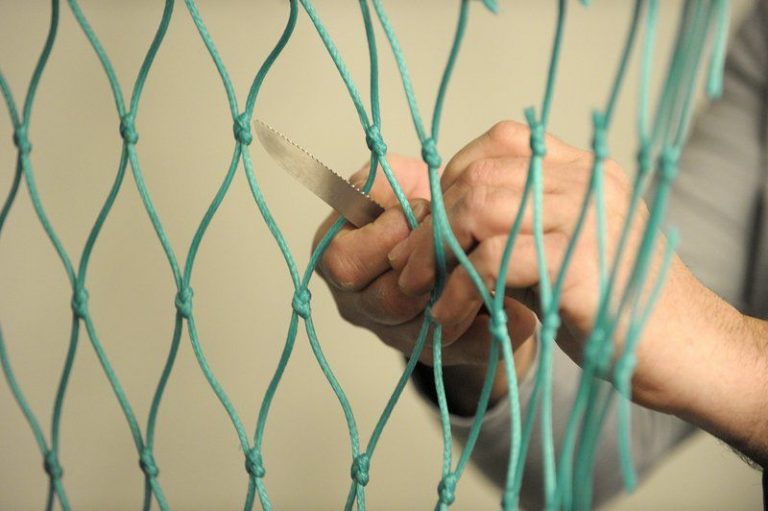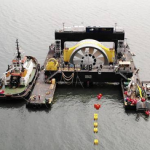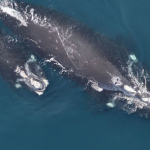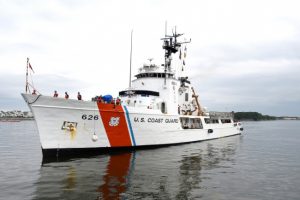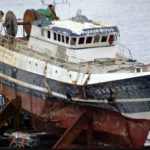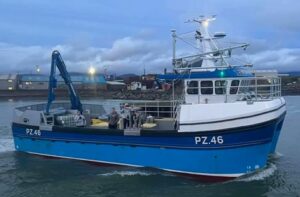Tag Archives: industrial aquaculture
New study uncovers fishy business with way feed is provided to major aquaculture operations: ‘The industry destroys food’
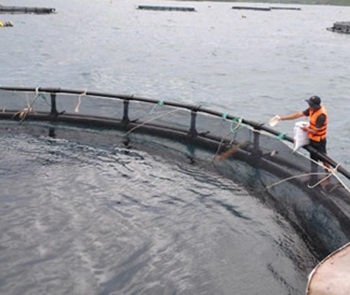 The fish farming industry has been using inaccurate data to downplay its role in the overfishing problem, a new report says. The fish farming industry has been drastically underreporting the amount of fish it pulls from the ocean each year to feed its carnivorous fish populations, according to Brigitte Wear of DeSmog. Salmon and trout subsist entirely on other fish and are also two of the most valuable farmed species in the world. However, according to a study by Science Advances, the industry is pulling 307% more fish from the ocean than previously reported. “What we understand about carnivorous fish farming has relied on the most optimistic data,” said Jennifer Jacquet, an environmental scientist at the University of Miami and co-author of the study. “The picture is not as rosy as previous studies led us to believe.” more, >>CLICK TO READ<< 09:20
The fish farming industry has been using inaccurate data to downplay its role in the overfishing problem, a new report says. The fish farming industry has been drastically underreporting the amount of fish it pulls from the ocean each year to feed its carnivorous fish populations, according to Brigitte Wear of DeSmog. Salmon and trout subsist entirely on other fish and are also two of the most valuable farmed species in the world. However, according to a study by Science Advances, the industry is pulling 307% more fish from the ocean than previously reported. “What we understand about carnivorous fish farming has relied on the most optimistic data,” said Jennifer Jacquet, an environmental scientist at the University of Miami and co-author of the study. “The picture is not as rosy as previous studies led us to believe.” more, >>CLICK TO READ<< 09:20
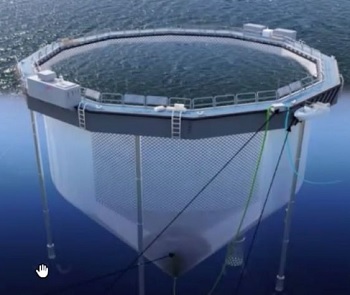
4 years later, the 4 large fish farms planned for Maine haven’t started construction
This year will be remembered in Maine, at least in part, as when interest in developing four large-scale fish farms on the state’s eastern coastline continued to intensify. It also will be remembered by some as yet another year during which, nearly four years since plans for the first proposal were announced, none of the four separate projects began construction. The projects are at various stages of the permitting process, with some being fully approved and others not yet having any permits. All have shied away from announcing specific timetables for when they hope to start to build. Nordic Aquafarms, Kingfish Maine, American Aquafarms, and Whole Oceans, >click to read< 10:39
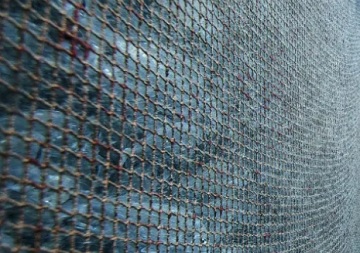
The U.S. is hungry for seafood, but more industrial aquaculture is not the answer
An often cited statistic to prove the need for industrial aquaculture is that as a country, we import as much as 90% of the seafood we consume. A lesser-known fact is that U.S. seafood exports have grown to record levels over the past decade. Rather than allowing destructive fish farming practices that can pollute our environment and displace commercial fishing in our markets, we should support our domestic fishing communities, so they can sell more of the higher-quality wild-caught seafood we produce here at home. Right now, megacorporation’s are pushing the U.S. Environmental Protection Agency and other federal agencies to gut existing regulations and fast-track permit approvals to build new floating factory fish farms and control even more of the seafood market. >click to read< 14:11

Move Over! Industrial aquaculture/aquafarming has Maine lobstermen and fishermen hot under the collar
High-profile privately funded ventures have lately been converging on this corner of the North Atlantic. Norwegian owned American Aquafarms wants to salmon in Frenchman Bay, and other large Canadian and Dutch finfish aquaculture companies are moving into the region. This bustle, though, has raised the hackles of lobstermen and women represented by grassroots Protect Maine’s Fishing Heritage Foundation organization. They say large-scale aquaculture corporations are intent on “privatizing” the public ocean, in the process displacing locals who’ve fished these waters for years and endangering their livelihoods. They feel considerably less optimistic about the burst of interest in aquafarming in their local waters,,,>click to read< 09:07
Ushering industrial aquaculture into the Pacific Islands Region EEZ is anything but sustainable
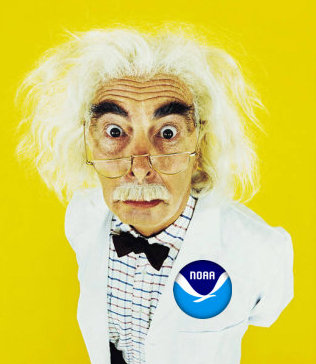 Right now, anyone can throw a cage into the open ocean within the Economic Enterprise Zone and begin an aquaculture operation, said Joshua DeMello, of the Western Pacific Regional Fishery Management Council. The beginning of that aquaculture management program for the Pacific Islands Region is in the works, under the eye of the National Oceanic and Atmospheric Administration National Marine Fisheries Service and in conjunction with Western Pacific Regional Fishery Management Council. The entities are preparing a programmatic environmental impact statement (PEIS) analyzing the possible environmental impacts of the proposed management program and alternatives. “The purpose of it is to develop a management program to support sustainable, economically sound aquaculture in the Pacific Island Region,” DeMello said. The PEIS process looks at options for permit duration, whether cages should be metal or net pens, and allowable species. But ushering industrial aquaculture into the EEZ is anything but sustainable, poses a threat to the environment and could impact commercial fishing, according to a biologist. Read the story here 20:13
Right now, anyone can throw a cage into the open ocean within the Economic Enterprise Zone and begin an aquaculture operation, said Joshua DeMello, of the Western Pacific Regional Fishery Management Council. The beginning of that aquaculture management program for the Pacific Islands Region is in the works, under the eye of the National Oceanic and Atmospheric Administration National Marine Fisheries Service and in conjunction with Western Pacific Regional Fishery Management Council. The entities are preparing a programmatic environmental impact statement (PEIS) analyzing the possible environmental impacts of the proposed management program and alternatives. “The purpose of it is to develop a management program to support sustainable, economically sound aquaculture in the Pacific Island Region,” DeMello said. The PEIS process looks at options for permit duration, whether cages should be metal or net pens, and allowable species. But ushering industrial aquaculture into the EEZ is anything but sustainable, poses a threat to the environment and could impact commercial fishing, according to a biologist. Read the story here 20:13

































